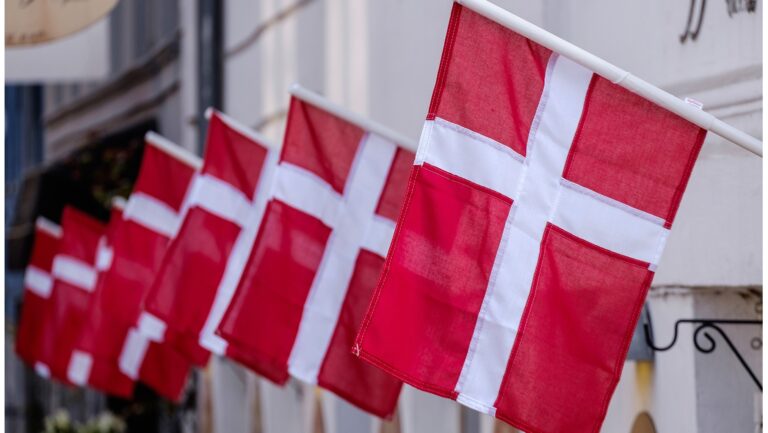Summer temperatures in Europe are rising year by year, with unprecedented hot spells causing serious health and economic issues across the continent. This July cities and residents used to milder heat in the summer are struggling to battle record high temperatures that have climbed above 40 degrees Celsius in several countries, including the UK.
What Causes the Scorching Heat?
Experts say that a subtropical high-pressure system called the Azores High has expanded, contributing to this summer’s unparallaled heatwave, with Britain recording its highest ever temperatures at over 40 Celsius on 19 July and France its second highest this past Monday. Although a few moderate cold fronts have managed to decrease the blistering heat somewhat during the past week, but the relief did not last long and by the end of the week southern winds have taken over, delivering hot air from North Africa and the Sahara. Scientists across the globe now tend to agree that it is largely human-induced global warming that is making heatwaves more intense and more likely. So it is no exaggeration to say that the extreme heatwaves we are experiencing today are essentially caused by the fossil fuels burned in the last decades.
The extreme heatwaves we are experiencing today are essentially caused by the fossil fuels burned in the last decades
Effects of the Lasting Heat
With July days being rather long, and nights short, continuous and long-term sunshine builds up higher temperatures. The air has no time to cool down, which means that in many countries, including Hungary, temperatures do not drop to under 20 Celsius even at night. Unusually warm nights affect sleep, often causing sleep deprivation, the long-term effects of which can be devastating for the human body. Lack of a good night’s sleep also impacts concentration, with the number of road and other types of accidents steeply rising in these circumstances.
Temperatures not dropping at night are only one of the dangerous consequences of heatwaves. The lasting highs may cause heatstrokes and dehydration, particularly affecting young children and elderly people. Dr Agostinho Sousa, of The UK Health Security Agency has said that it is important to find shade where possible when UV rays are the strongest, between 11 a. m. and 3 p. m., and most importantly people should focus on keeping themselves hydrated. Measures taken against the heatwave include closing curtains and blinds to keep flats cool, avoiding physical exertion, and carrying water when travelling. Heatwaves currently are the deadliest extreme conditions in Europe. Only in the UK, 2500 people died because of hot days in 2020, and that year in fact saw heatwaves that were less hot and less frequent than what we are experiencing in 2022.
Heatwaves also have a significant effect on mental health, said Dr Laurence Wainwright, of the University of Oxford. According to Dr. Wainwright, that ‘Roughly speaking, for every 1C increase in monthly average temperature, suicide rates increase by 1-2 per cent’.
Will it Get Better?
The short answer would be no, it will not. At least not until the climate crisis is averted. This heatwave is a harsh reminder of the accelerating impacts of global warming. Some scientists expect that London will feel like Barcelona by 2050. It also seems rather likely that in 2022, many European countries will experience scorching temperatures over 40 Celsius, and it is only expected to keep rising in the coming years. Human activity is adding more greenhouse gases to the atmosphere every year and the heat-trapping effect of this will only level off when the world reaches net zero emissions.
Combating the Heat in Hungary
Not exempt from the European heat, Hungary has experienced one of its hottest weeks ever. Temperatures in Budapest rose to over 37 Celsius, while in other parts of the country they climbed even higher. A red alert was declared in Hungary on Thursday, in effect until Monday, with waterworks in the country calling for water conservation in many municipalities. The government has encouraged city residents with no air-conditioning in their homes to seek relief in shopping centres. At major public transport and train stations free bottled water is being handed out, and in many public spaces outdoor cooling gates have been set up.
Nuclear energy is one of the safest and most environmentally-friendly sources that a country can use
These measures, however, are only temporary and do not provide a lasting solution. Last week, former president of Hungary János Áder, well-known for his commitment to environmental protection, invited an expert on nuclear energy to his Blue Planet podcast. The expert, Zsolt Hárfás explained that in his opinion, nuclear energy is one of the safest and most environmentally-friendly sources that a country can use. Nuclear energy can therefore play a major role in Hungary meeting its commitments as a signatory of the Paris Agreement, a legally binding treaty on climate change, according to which the countries that signed it are to become carbon neutral by 2050.
If Hungary is to reach net-zero emissions by 2050, it needs to expand nuclear and other sustainable energy supplies in the country, Mr. Áder and Mr. Hárfás agreed. According to Mr. Hárfás, all countries should strive to reach a healthy mix between sustainable and nuclear sources, otherwise they will almost almost certainly fail to achieve the ambitious carbon neutrality goal.
What Comes Next?
What we can expect is that summers will continue to get hotter in the future, and the only way to mitigate that is to tackle the crisis of global warming, which in turn is only doable by achieving net-zero emissions. While many countries have pledged that they would reach that goal by 2050, the road leading there is long, with many obstacles ahead. We may need to brace ourselves for what is coming – this might be the coolest summer of the rest of our lives.








